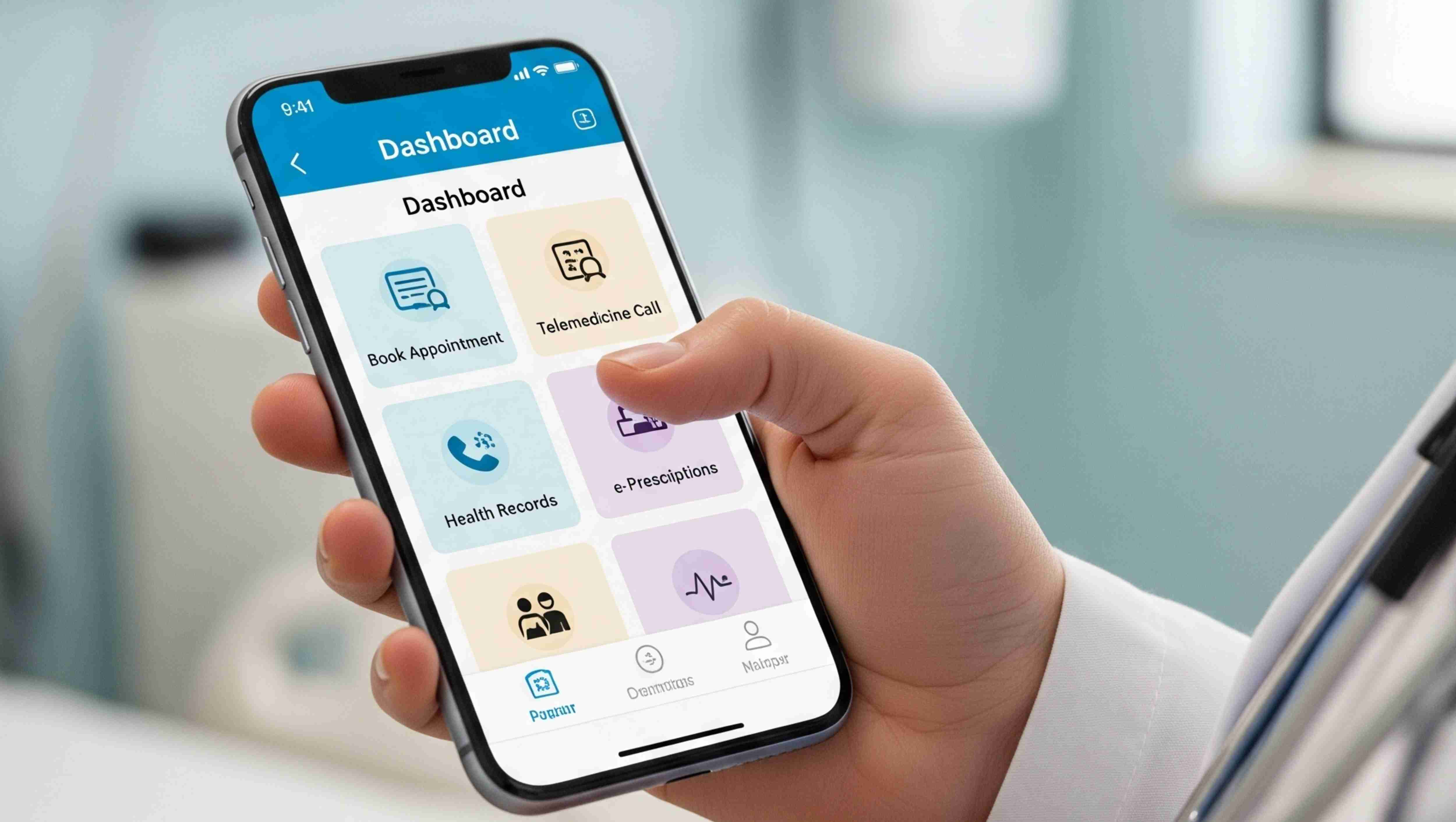Top Features in Healthcare Mobile Apps
| 0 Comments | Harmi V

Introduction: Mobile Apps Are Now the Frontline of Healthcare
In 2025, healthcare begins on your phone. From booking an appointment to reviewing lab results, patients now expect their entire care experience to be accessible from a mobile app. Clinics and hospitals that fail to deliver this convenience risk losing trust and engagement.
At Gopanear LLP, we've helped healthcare providers build mobile platforms that bridge patients and providers through seamless, secure, and intuitive interfaces. Here are the top features that define successful healthcare mobile apps today—and how real clinics are benefiting.
1. Secure User Authentication & Profile Management
What it is: Encrypted login, multi-factor authentication, and patient profiles.
Why it matters: Builds trust by protecting medical data and maintaining privacy.
Use Case: We implemented biometric login and secure PIN access for a diagnostic app, boosting user retention and data security.
2. Appointment Booking with Real-Time Availability
What it is: A calendar-integrated booking system that syncs with provider schedules.
Why it matters: Reduces missed appointments and increases efficiency.
Use Case: Gopanear's system for pediatric clinics cut front-desk load by 45% and automated SMS confirmations.
3. In-App Video Consultation (Telemedicine)
What it is: Built-in, secure video calls with healthcare providers.
Why it matters: Enables remote care and saves time for both patients and doctors.
Use Case: A women’s health app featured postnatal video consults, with report sharing directly after sessions.
4. Health Record Access & Document Uploads
What it is: A dashboard to view prescriptions, lab reports, and upload files.
Why it matters: Supports continuity of care and smooth referrals.
Use Case: A multi-specialty hospital app allowed report uploads, reducing redundant testing and speeding up treatment.
5. Smart Notifications & Reminders
What it is: Push alerts for appointments, medicines, and health updates.
Why it matters: Reduces no-shows and increases treatment compliance.
Use Case: Our dermatology app reduced missed appointments by 30% with customizable reminders.
6. E-Prescription & Medication Tracker
What it is: Stores digital prescriptions and tracks medicine intake.
Why it matters: Ensures patients take meds correctly and on time.
Use Case: A senior-care app featured refill alerts and pill visuals; it also notified caregivers when doses were missed.
7. Multi-Language Support & Accessibility Features
What it is: Regional language support with accessible UI elements.
Why it matters: Makes healthcare apps usable for diverse age groups and regions.
Use Case: A rural health app in Hindi, Gujarati, and Marathi saw usage increase by 2.3x, especially among elderly users.
8. Symptom Checker & Triage Tools
What it is: Interactive self-assessment tools with symptom input and basic guidance.
Why it matters: Reduces unnecessary visits and builds patient confidence.
Use Case: A GP network app redirected 18% of non-urgent visits to home care instructions via AI triage.
9. Digital Payments & Insurance Integration
What it is: In-app payments for services and claim processing for insurance.
Why it matters: Simplifies payment workflows and shortens the claim cycle.
Use Case: One of our apps allowed patients to link insurance accounts and submit claims directly.
Real Example: Shopuze Health Companion App
We developed Shopuze Health Companion for small clinics and home-care providers. Key features included:
- Real-time appointment sync
- Offline record access
- Audio guides for elderly users
- Mobile lab updates via camera
- Voice search and regional language support
- Symptom checker with auto-routing
Results:
- 65% drop in phone bookings
- 50% faster patient onboarding
- Accessibility update doubled app ratings
- 35% better prescription refill rates
Conclusion: Build Mobile Apps That Patients Actually Use
The best healthcare mobile apps don’t just offer flashy features—they solve real patient problems. From missed appointments to medication lapses, every tap on your app should bring users closer to better health outcomes.
If your clinic or health service is ready to modernize its mobile strategy, make sure it’s focused on what truly matters: accessibility, security, usability, and trust. Thoughtful mobile app design isn't a luxury anymore—it's the new standard in patient care.



Leave a Reply